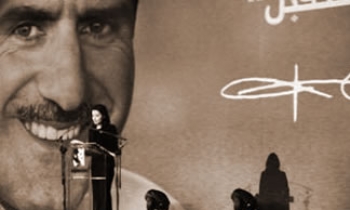PARIS: Help Wanted: Aging former Maoists seek wealthy industrialist to help finance and lead modernization of money-losing French daily newspaper. Capitalist approach welcome, but profit not expected.
Libération, the newspaper founded by the philosopher Jean-Paul Sartre and members of the extreme political left, says the end is nigh.
The paper's largest shareholder, Edouard de Rothschild, a member of the banking family, has stopped paying operating costs and, according to Pierre Haski, deputy editor of the newspaper, salaries have been frozen for October. A report from La Correspondence de la Presse says the newspaper has suspended health benefits payments to the government. Rothschild representatives would not confirm the report.
Years of falling readership and advertising have led the newspaper to this climactic point.
"On Sept. 28, we hit the wall," Haski said. "This seems too sad, but it is the reality."
No white-knight investor has been forthcoming, in part, analysts and newspaper executives say, because outside investors fear that the publication may not have evolved financially much beyond its militant era of the 1970s, when all advertising was refused and employees from journalists to janitors received the same salary.
Desperate for a solution and true to their roots, the journalists last week proposed that readers help finance the privately held newspaper in exchange for a share of ownership in it. While not reacting specifically to that plan, Rothschild said Thursday he would offer a last-ditch effort to save the newspaper on Sept. 27.
Losses that reached €5 million, or $6.3 million, in the first six months of the year helped prompt Rothschild in June to dismiss the newspaper's longtime publisher, Serge July, and replace him with a new leadership structure. Recently, Rothschild also cut costs by closing a weekend supplement, Screens, three months after it was introduced.
Four of the newspaper's most prominent journalists, including Florence Aubenas, who was held hostage in Iraq for five months, objected to the changes and departed in protest this month.
Many of the newspaper's 280 staff members and some readers questioned whether the newspaper can retain its editorial integrity under a structure that splits the publisher's duties between a journalist selected by a staff vote and a former magazine publisher selected by Rothschild.
On Thursday, the staff appealed to both Rothschild and readers through articles and photos spread across two pages, plus a blog-style conversation as well as a live chat on the Internet.
The 1,700-word article described the newspaper's situation as unprecedented and appealed to Rothschild to invest in the paper, rather than simply make cuts. The article also sought to assure readers that Rothschild's ownership had not impinged on the editorial content.
But the point was to advocate a structure that would bring a cash injection by allowing readers to purchase shares.
"People would buy them to support the publication, not as a speculative stock market share," Haski said. "We can almost guarantee that nobody would earn a centime on this investment."
Reader support alone will not be enough, Haski acknowledged, saying the newspaper needed better cooperation from Rothschild as well as fresh investment from an outside source.
"For the first time in our history, we have a shareholder who invested in the newspaper to make money," Haski said.
"Our previous investors were happy for us to keep the losses to a minimum."
Rothschild invested in Libération in early 2005 with the stated intention of building a media group, a sector that he considered undervalued.
The financier declined to be interviewed for this article. In July, he reacted angrily to an opinion piece in Le Monde by a staff member from the early days of Libération who cited Sartre's statement that "Money does not have ideas." Rothschild replied, also in Le Monde: "Libération needs moral, intellectual and financial support. Libération does not need a requiem."
For Haski and other members of the staff, what Libération really needs is an investor with a long-term vision for rebuilding the publication. "We need someone who can develop the newspaper with us," Haski said. "This takes more than just a cost-cutting banker."
Finding such an investor is likely to be difficult. According to several newspaper executives with knowledge of the situation, Rothschild has approached potential investors from across Europe without success.
For international investors, that brand name may be part of the problem, said Bertrand Pecquerie, director of the World Editors Forum.
"Foreign investors see the newspaper as an anachronism of the far left," Pecquerie said. "The newspaper's readership has aged from the 1960s and is now literally dying off."
From the perspective of circulation, Libération has turned into a niche- market publication, some analysts say.
Although technically still a national newspaper, Libération's audited circulation of 144,480 for 2005 is less than half of the other general-interest national newspapers, Le Monde and Le Figaro.
More than one third of Libération's readers are in the 35-to-49 age bracket, whereas fewer than a quarter of readers fall in that range on an industrywide basis, according to MPG, a media planning agency.
"Libération now reaches out to this micromarket of older culture-focused readers," said Corinne Moyse, a media planner for press strategy at MPG. "It is a good place for the culture channel Arte to advertise, but it really is no longer a mass-market publication."
The crisis at Libération should not be taken as indicative of the broader newspaper industry, said Gavin O'Reilly, president of the World Association of Newspapers and the chief operating officer of Independent News & Media, which is based in Ireland.
"I don't know about the specifics of Libération," O'Reilly said, "but some newspaper groups have not switched their cost base and re-energized their brand quickly enough."









